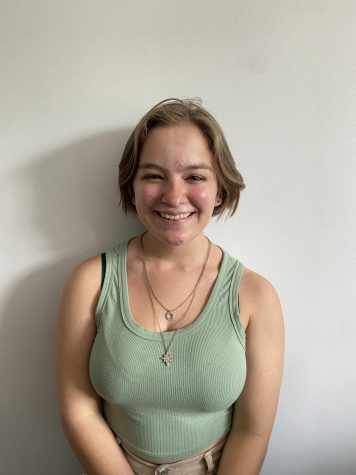Social Media Impossibilities
Platforms lead to “Kids Getting Older Younger,” other insecurities
Social media makes us like ourselves less. Obviously. Everyone online knows this.
Consciously or unconsciously, we compare ourselves to everyone we see online, whether we want to be like or unlike them. Tiktok reduces its content creators to small facets of who they are offline — we compare our entirety to their parietal reality and we feel inadequate. Consciously, we know that the lives of people online aren’t as perfect as they seem, but obviously, almost all we see from content creators is perfection.
It’s all we ever post of ourselves. Few people post without thinking nowadays; the younger generations post carefully-curated pictures to craft their online persona. Then we scroll, and see an edited ten seconds out of someone’s day and contrast it with 86,400 seconds of our day that may have been happy, sad, where we maybe felt like crap or maybe felt wonderful, and we wonder why our life isn’t as perfect as theirs.
Social media makes kids like themselves less too, and it leads to a phenomenon called “Kids Getting Older Younger.” This is pushed with marketing, movies, media and hundreds of different ways, but it results in kids at younger and younger ages trying harder and harder to look, act or be older.
It is natural for kids at all ages to want to be older — so much of adolescence is spent longing for respect and maturity — but kids should not be pushed to act above their age. It forces them to analyze themselves and deconstruct themselves to look like something they’re not, it leads to them being exposed to mature information and ideas before they’re ready, and it can lead to them being taken advantage of by people older than them because they aren’t as mature as they think they are.
TV and movies amplify this problem by casting older people to play teenagers and younger adolescents. Of course, this is often due to child labor laws, but it can be problematic at times. Movies and TV shows are, of course, visual mediums, so they make their actors look glamorous and perfect. They often look little like the teenagers they are meant to represent, instead having perfect skin and makeup and personalities. It leads to massive insecurities with teenagers, because they believe they should look like the people playing them on TV, while in reality, this is a completely unrealistic expectation.
I’m a teenager, and even though I know this casting is unrealistic, I still feel bad about myself for not looking like them. I know I’m not alone in this.
None of what I’m saying here is new information — we are all aware of how social media impacts us. The users of these platforms aren’t idiots: we know that people have lives beyond social media that aren’t accurately portrayed. Most of us have love-hate relationships with social media, but it’s almost impossible to quit because it has so many benefits. It allows us to connect with each other, it’s a way to communicate and relate and find common ground.
So much of the world has become dependent on social media that quitting effectively cuts one off from large parts of the world. The only thing we can do right now is be aware of the hold it has on us and try to use it in a healthier way.

Sofia Hughes is a senior and this is her first year on staff! In school, she is involved in Headrush Magazine and Rep Theater, as well as NHS and NEHS....




